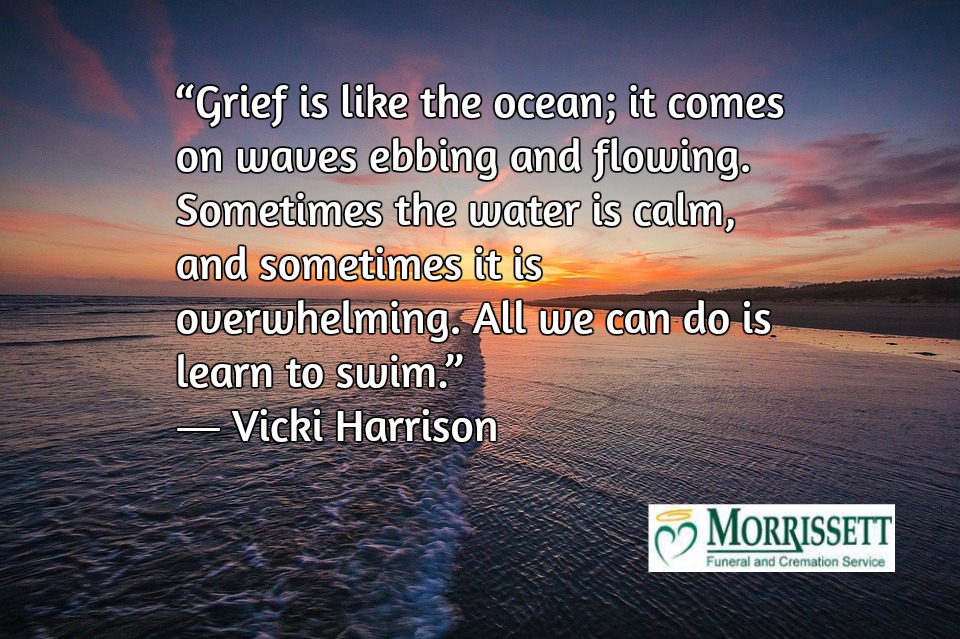Grief is a natural response to loss. It can feel overwhelming. Many people describe grief as a wave. Sometimes it crashes in, and sometimes it recedes. Understanding this can help us cope better.
What Is Grief?
Grief is a deep emotional pain. It usually follows the death of a loved one. However, grief can also occur due to other losses. This includes losing a job, ending a relationship, or moving away.
Why Do We Say Grief Comes In Waves?
When someone experiences grief, they often feel a mix of emotions. One moment, they may feel okay. The next moment, a wave of sadness can crash down. This can happen unexpectedly.
Understanding The Waves Of Grief
The waves of grief can vary in size and intensity. Some days may feel easier. Other days may feel very hard. Here’s a breakdown of what these waves can look like:
- Small Waves: These can be moments of sadness that pass quickly.
- Medium Waves: These may last longer and require more energy to cope.
- Large Waves: These can feel overwhelming and may lead to crying or withdrawal.

Credit: www.morrissett.com
Stages of Grief
Grief is often described in stages. Understanding these stages helps us see the waves. The most common model is the Kübler-Ross model. It includes five stages:
- Denial: Feeling numb or in shock.
- Anger: Feeling frustrated or mad.
- Bargaining: Trying to change the situation.
- Depression: Feeling deep sadness.
- Acceptance: Coming to terms with the loss.
How to Cope with Grief Waves
Here are some tips to help you deal with the waves of grief:
1. Acknowledge Your Feelings
Allow yourself to feel sad. It’s okay to cry. Accept that grief is a natural part of life.
2. Talk About It
Sharing your feelings can help. Talk to friends, family, or a counselor. They can support you in your journey.
3. Create A Routine
Having a daily routine can provide structure. This can help you feel more grounded.
4. Focus On Self-care
Take care of your body and mind. Eat healthy foods, exercise, and get enough sleep. These can help you feel better.
5. Remember The Good Times
Think about happy memories with your loved one. It can bring comfort and joy amidst the sadness.
How Long Does Grief Last?
There is no set timeline for grief. It varies for everyone. Some people may feel better in weeks. Others may take months or even years. The waves will come and go.
Grief Can Be Lonely
Grief can feel isolating. You might think no one understands. But many people experience similar feelings. Joining a support group can help you feel less alone.
Finding Support
Support can come from many places:
- Friends: Talk to them about how you feel.
- Family: They can offer comfort and understanding.
- Support Groups: These can connect you with others who understand.
- Counselors: Professionals can help guide you through your grief.
When Grief Becomes Too Much
If grief feels too heavy, seek help. Signs that you may need support include:
- Feeling sad all the time.
- Having trouble sleeping.
- Experiencing feelings of hopelessness.
- Withdrawing from friends and family.
Celebrating the Life of the Departed
Finding ways to honor the person you lost can be healing. Consider creating a memory book. You can also plant a tree or donate to a cause they cared about.
Frequently Asked Questions
What Are The Stages Of Grief?
Grief typically involves five stages: denial, anger, bargaining, depression, and acceptance. Each stage varies in duration and intensity.
How Can I Cope With Grief?
Coping with grief involves talking, journaling, or seeking support from friends and professionals. Find what helps you heal best.
Is Grief A Normal Response?
Yes, grief is a natural emotional response to loss. It’s a sign of love and connection to what was lost.
Can Grief Affect Physical Health?
Grief can impact physical health, leading to fatigue, headaches, and weakened immunity. Prioritize self-care during this time.
How Long Does Grief Last?
Grief varies for everyone; it can last weeks, months, or even years. Allow yourself time to heal at your own pace. “`
Conclusion
Grief comes in waves, and that’s okay. It’s a journey that takes time. Allow yourself to feel and heal. Remember, you are not alone. Support is always available. Embrace each wave as it comes.

Credit: www.facebook.com
Key Takeaways
- Grief is a natural response to loss.
- Grief can come in different waves.
- Talking about your feelings helps.
- Self-care is important during grief.
- Support can come from many sources.
Understanding the waves of grief helps us navigate this tough journey. Each wave is a part of healing. Embrace the journey, and remember, it’s okay to seek help.
